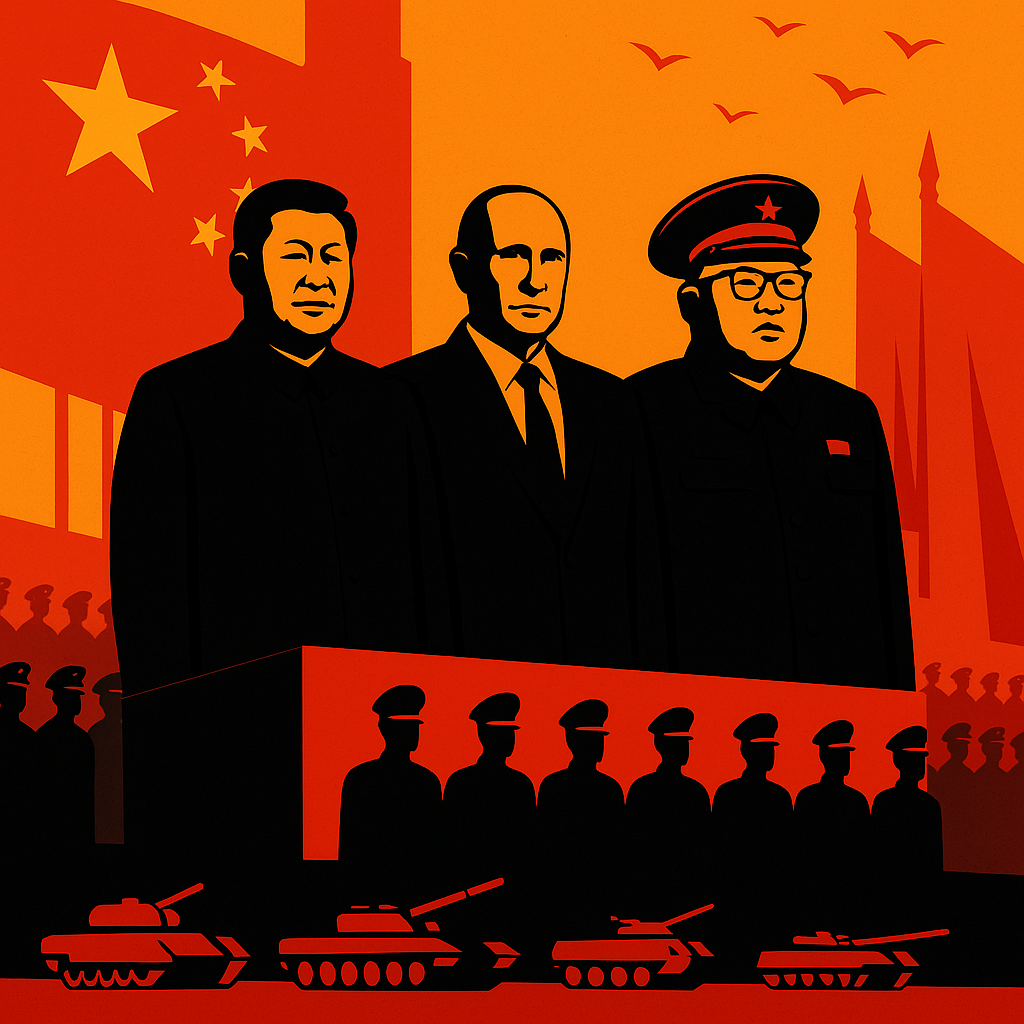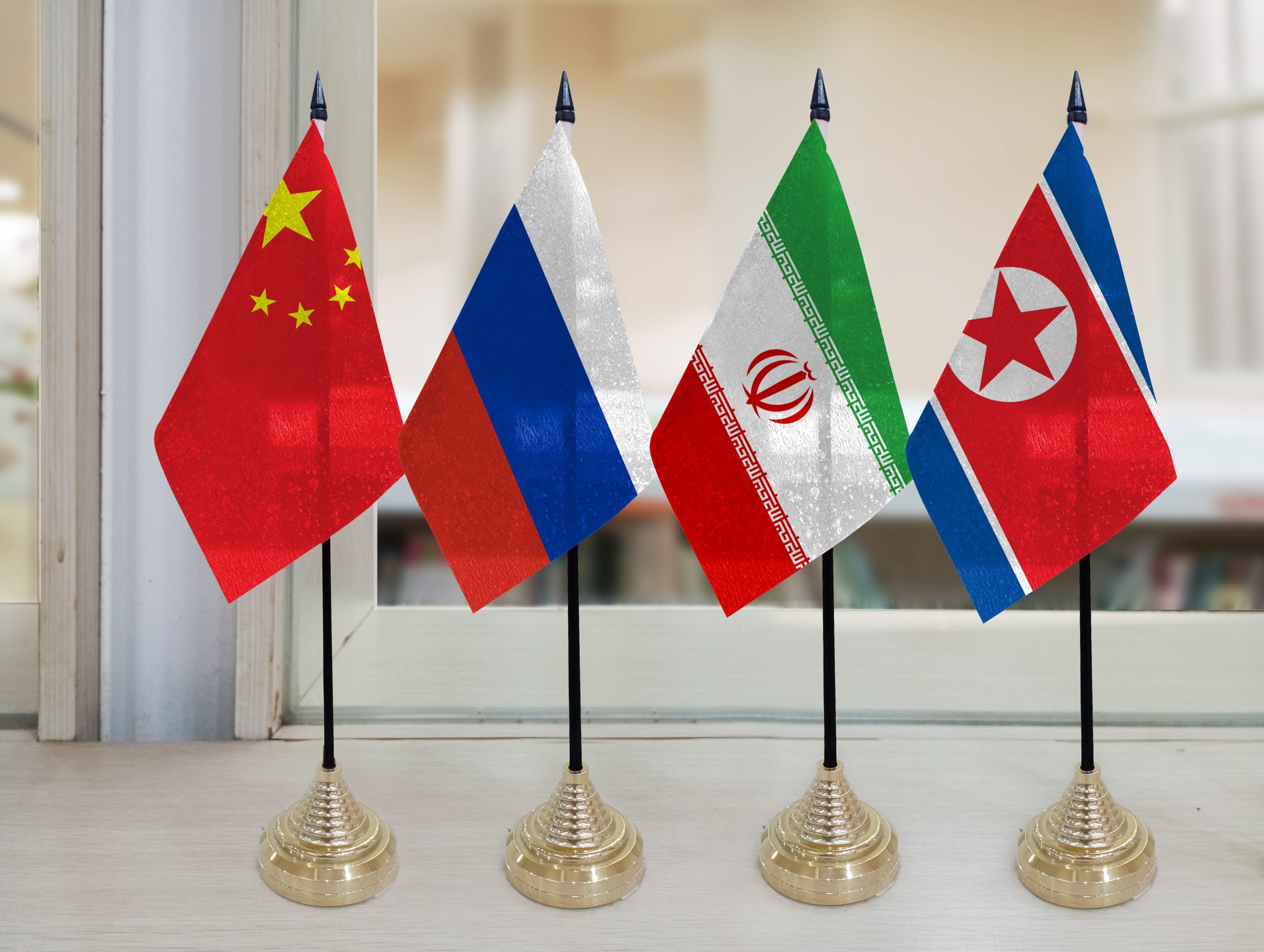Authoritarian Alliances and the Risks to the Global Order
In this episode of The International Risk Podcast, Dominic Bowen speaks with Doug Livermore, Senior Vice President at CenCore Group and Lieutenant Colonel in the U.S. Army’s Special Operations Command, about the accelerating cooperation between authoritarian regimes and the risks this poses to international stability. Drawing on his extensive experience in special operations, irregular warfare, and national security, Livermore explains how alliances of convenience between powers like China, Russia, Iran, and North Korea are reshaping the global balance and challenging the resilience of democratic systems.

The Rise of Authoritarian Coordination
Livermore reflects on the images of Xi Jinping, Vladimir Putin, and Kim Jong-Un standing together at Beijing’s Victory Day parade. He argues that this was more than symbolic. It represents a trend of authoritarian regimes aligning their strategies, supply chains, and political narratives. These are not traditional alliances but what he calls marriages of convenience, designed to resist and undermine what they describe as a US dominated international order.
This cooperation is political, military, and economic. China’s Belt and Road Initiative has become a tool to expand influence in Africa, Latin America, and the Middle East. Russia, isolated after its full scale invasion of Ukraine, has become increasingly dependent on Chinese trade, technology, and diplomatic support. Together, they are promoting alternative visions of governance and presenting themselves as defenders of countries that feel excluded from the benefits of globalization. Livermore warns that this pragmatic solidarity threatens to fragment international norms that have supported stability for decades.
Lessons from Ukraine as a Laboratory of Risk
For Livermore, Ukraine is not only defending its sovereignty but also serving as a laboratory of modern irregular warfare. Drone swarms, sabotage operations, infiltration campaigns, and artificial intelligence in command and control are being tested in real time. These innovations are being watched closely by authoritarian regimes that are eager to adapt them to their own contexts.
China has sent observers to learn from Russia’s failures and Ukraine’s successes. North Korea has used the war as an opportunity to test missiles and artillery, gaining battlefield data to refine its programs. Iran has transferred drone technology to Russia and received upgraded systems in return. Livermore emphasizes that the lessons of Ukraine are already shaping strategies in the Indo Pacific, the Middle East, and beyond.

Proxies and Peripheral Actors
Authoritarian cooperation is not limited to great powers. Livermore explains how proxy groups and peripheral states are being integrated into this network. The Houthis in Yemen, backed by Iranian technology and Russian support, have disrupted shipping through the Red Sea, unpacked in episode 244 with NATO legend Dr. Jamie Shea . Venezuela has provided a platform for Chinese dual use infrastructure and narcotics flows that weaken US society under the concept of unrestricted warfare. Across Africa, Russian operatives under the Wagner Group and now the Africa Corps have supported coups, destabilized democracies, and secured access to critical minerals and bases.
These activities, Livermore argues, are not isolated incidents. They are part of a strategy to weaken democratic influence, expand authoritarian reach, and exploit instability. The risks are not only regional but global.
Strategic Distraction and the Indo Pacific Pivot
China in particular has pursued a strategy of distraction. By supporting partners and proxies in multiple regions, it keeps the United States and its allies tied down while it advances in the Indo Pacific. Livermore points to the rapid expansion of Chinese anti access and area denial capabilities, the development of hypersonic missiles, and experiments with artificial intelligence to replace traditional command and control.
The combination of these capabilities could prevent the United States from responding effectively to a Chinese move against Taiwan or in the South China Sea. At the same time, China is expanding its nuclear rocket forces to hold the US homeland at risk. Livermore warns that this combination of conventional denial and nuclear leverage could give Beijing unprecedented power to dictate terms in a crisis.

Strengthening Democratic Resilience
Livermore stresses that democracies must do more than react. They need to invest in burden sharing, modernize alliances such as AUKUS and Five Eyes, and accelerate technological innovation. He argues that the challenge is not only military. It is political, economic, and moral. Democracies must provide alternatives that are attractive to states feeling excluded and must prove that cooperation still delivers stability and opportunity.
Conclusion
The conversation with Doug Livermore makes clear that the world is entering a period of systemic competition where authoritarian regimes are no longer acting as isolated challengers. They are cooperating to build an alternative order. The risks for democracies are profound. The question is not only how to defend the existing order but how to adapt, compete, and renew it in a world where the rules are being rewritten.



One Comment
Comments are closed.